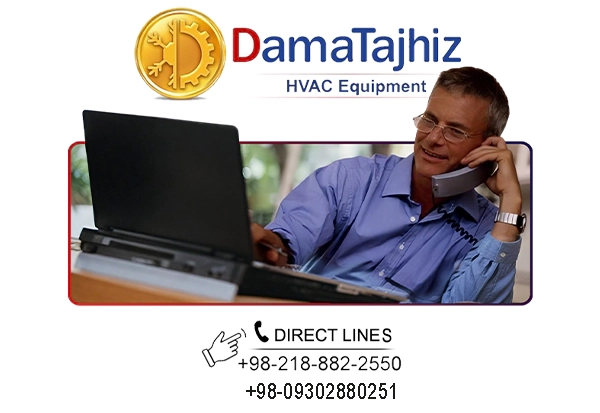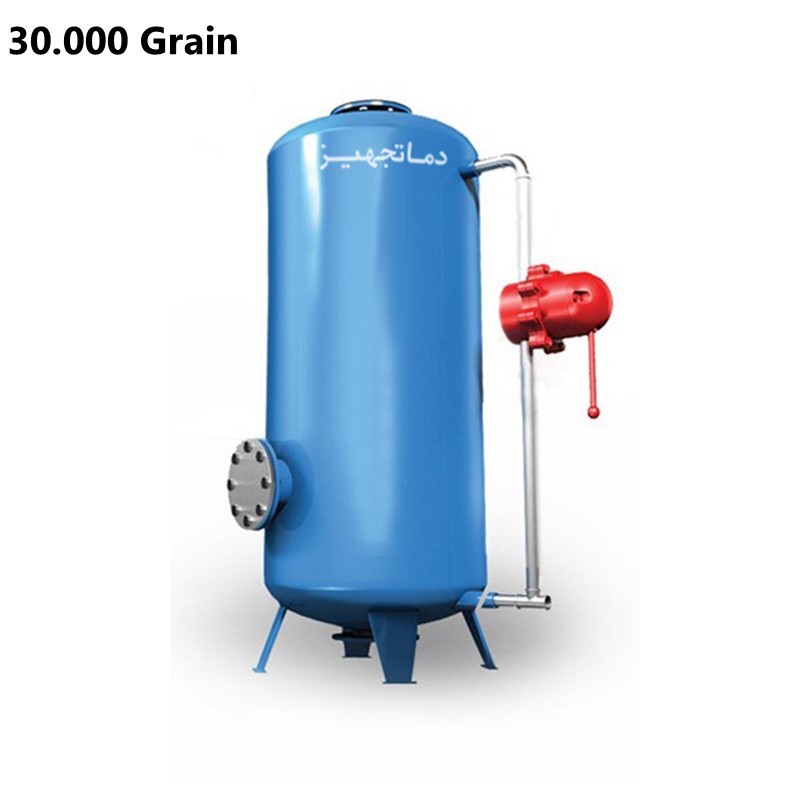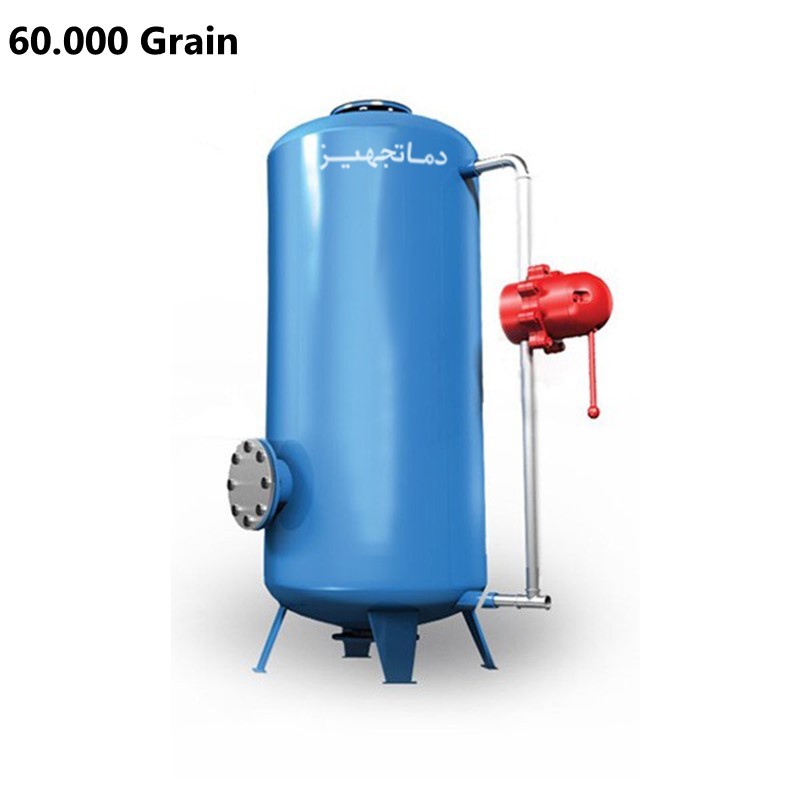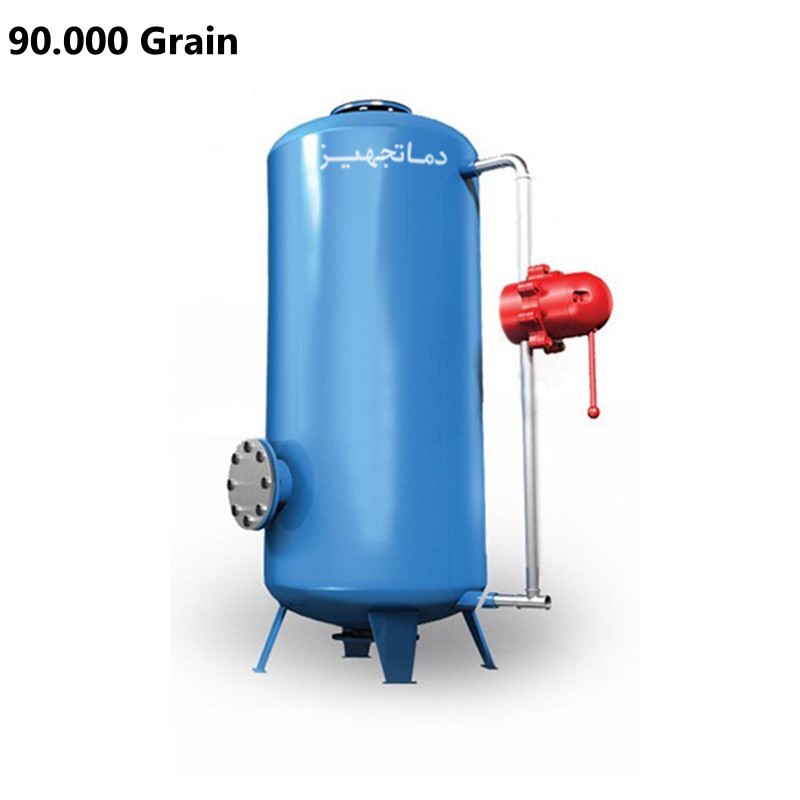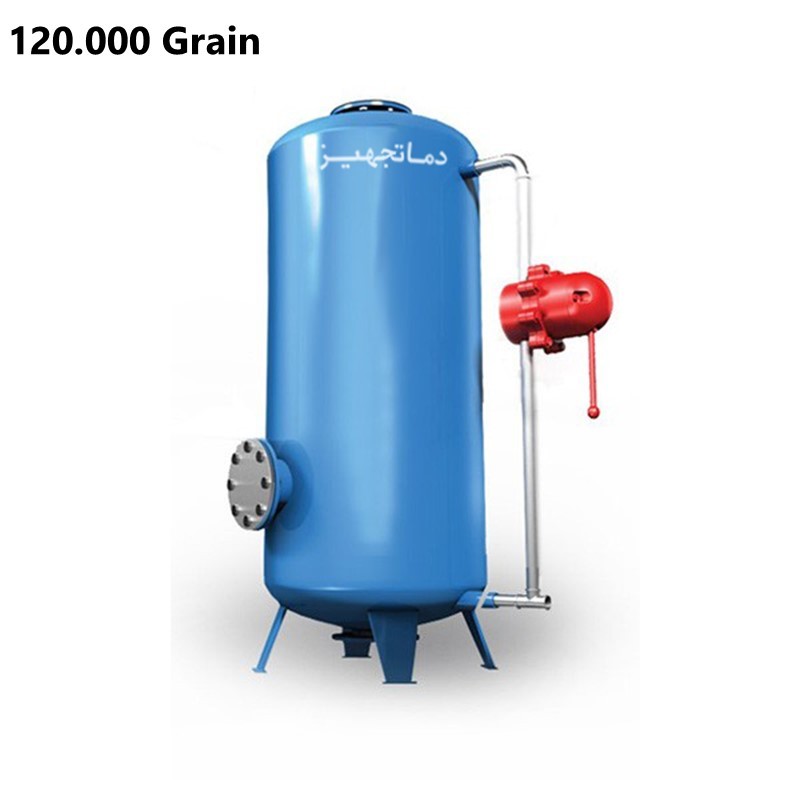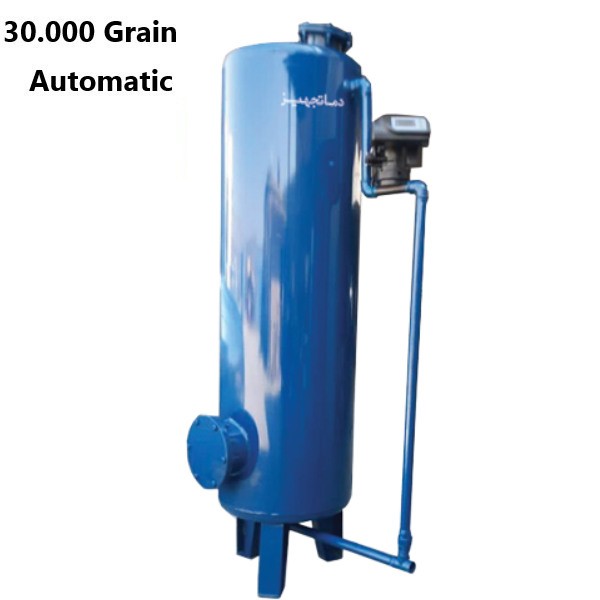Water Softener / Water Descaler
A Water Softener / Descaler is one of the most essential devices for preventing scale formation in the water of cooling and heating systems. In the following section, the types, selection method, and applications are reviewed, and the best price for purchasing a water softener is presented.
Expert Guide to Selecting and Pricing Water Softeners
One of the major issues in water used for HVAC systems, central heating systems, and steam boilers in industrial equipment is the presence of magnesium and calcium ions, or dissolved minerals. When water temperature changes in closed heat transfer systems, these ions deposit on pipe walls and surfaces, reducing heat exchange efficiency.
Water softeners are used to remove and eliminate these ions, and resin-based water softeners provide the most effective method for removing suspended mineral compounds and dissolved salts from the water used in closed heating and cooling systems of buildings.
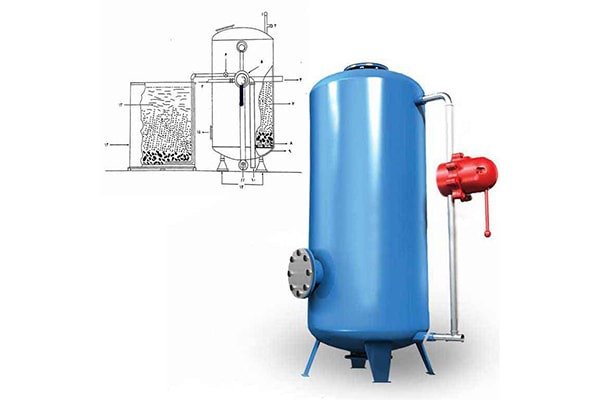
Review, Selection, and Pricing of HVAC Equipment
Benefits of Water Softeners
Water softeners, descalers, and all water filters can have many benefits for your health; the following are four of the most important ones:
- Reducing the harmful effects of water hardness on heat transferring and air conditioning systems.
- Saving money and energy.
- Extending the lifespan of equipment and pipes.
- Reducing the possibility of depositing calcium and magnesium sulfate on surfaces and pipes of any device.
Types of Water Softeners
Water softeners come in numerous models based on many factors; in the following, we will discuss them to ensure you get all the information you need.
Different Types of Water Softeners In Terms of Performance
Based on the performance, there are four types of water softeners:
- Resin Water Softener (Brine Tank): A water softener resin AKA brine tank is a special type of water softener that has a very resistant metal cylindrical or FRP body with a pipe and a multi-way valve on its body. By removing all excess ions in water, water softener resin provides the most stable method of water softening in institutional and industrial systems. It works in such a way that a bed of silica with resin filters most of the deposit in the water.
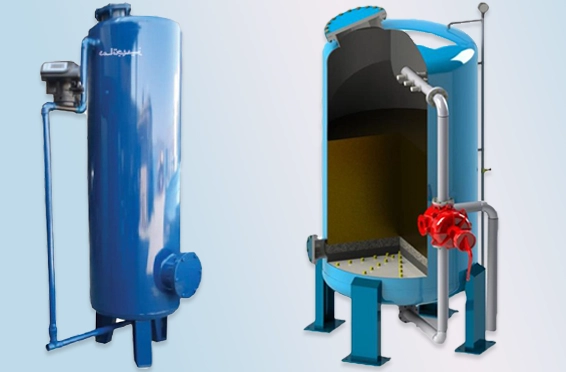
- Magnetic Water Softener: It is possible to convert calcium crystals from calcite to aragonite by installing magnetic water softeners on a pipe of the same size in the water flow path, and finally, these crystals will become microcrystals floating in the water, which will not be able to settle for a long time and are eventually discharged from the outlets.
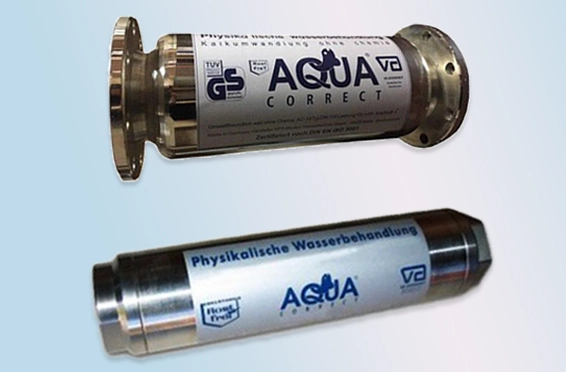
- Ultrasonic Water Softener: Ultrasonic water softeners create an electromagnetic field and prevent deposition in the heating equipment pipes. This type of water softener is very easy to install, and all you have to do is place it around the corresponding pipe.
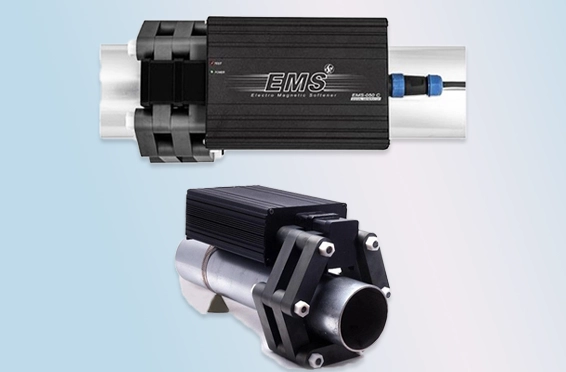
- Electronic Water Softener: This type of water softener not only prevents the deposition but can also remove the pre-formed deposits on the pipe wall. Which has a great effect on increasing the efficiency of converters and the amount of heat transfer.
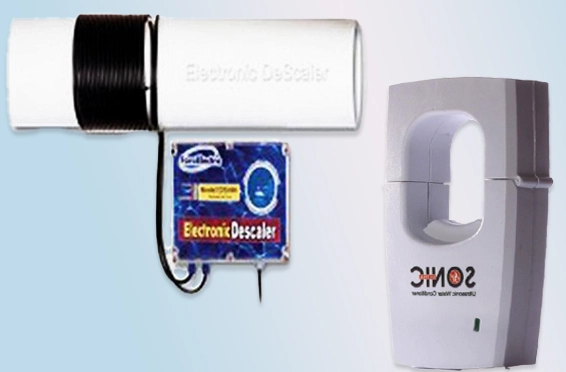
Types of Water Softener Resin (Brine Tank)
There are two types of water softener resin, which are divided by the body material:
- Fiberglass Brine Tank (FRP): The body is made of fiberglass and polyethylene, and the body color of these water softeners is often white or blue.
- Metal Brine Tank: The body of this type of water softener is made of steel or galvanized; the metal water softener resin has a higher capacity and working pressure than the fiberglass one and is used for larger industrial environments.
Note: Water softener resins are divided into two types, fully automatic and semi-automatic, in terms of how the multi-way valve works.
Water Softener Resin (Brine Tank) Capacity Estimation
To calculate the required water softener resin for your equipment, simply follow the instructions:

After determining the amount of water consumed in the cooling and heating cycle and the water hardness level (using special kits), use the formula to calculate the required capacity of the water softener resin for your project.
Brine Tanks Components and Parts
water softener resin is, in general, made of 9 parts, which are as follows:
- Brine tank
- Nozzle
- Water transferring pipe (riser)
- Water-softening resin
- The piping
- Multi-way valve
- Salt tank
- Drain pipe
- Silica substrate
How Brine Tank or Water Softener Resin Works
In brine tanks (water softener resin), water softening is done using the ion exchange process. As ion exchange, resins absorb hard water ions and sodium ions with them (odium ions are stable in water and do not precipitate).
For this reason, water containing sodium ions is called soft water. However, it should be noted that the type of water softener resin should be selected based on the type and level of the hard water.
Moreover, the water softener resin loses its ion-exchanging power after some time and will not function properly. Therefore, they should be washed with a 10% salt or sodium chloride solution to restore their power.
Before the salt water passes over the resin, the resin is first rinsed so that the salt water does not enter the water of the central heating system because salt is highly corrosive and damages the equipment of the facility system.
What is Reverse Osmosis?
In reverse osmosis, first, the hard water is pumped to the device and then passes through the semi-permeable membrane; at this stage, the water deposit cannot pass through the membrane, and for this reason, the water coming out of the device is completely soft and solvent-free, which is great for drinking and consumption water.
Factors to Consider When Buying a Water Softener Resin
To buy the right water softener resin that suits your needs, keep the following factors in mind before making any purchases:
- Inlet water hardness in PPM
- The flow rate of the input water
- Resin type and capacity
- The duration of the regeneration and washing cycle
Note: The volume of resin, the dimensions of the water softener (diameter and height), and the material of the body are the main characteristics of resin water softener tanks. Brine tank manufacturers usually provide general specifications, including service water flow rate, regeneration flow rate, and quick washing flow rate.
Also note that in the specialized HVAC group of Damatajhiz, all the water softener systems and descalers are only sold in bulk. Therefore, if you want to wholesale any of these products, feel free to contact us.
What Makes the Water Softener an Essential for Every Engine Room?
It is necessary to remove the hardness of the water because when the water is heated or cooled, if the water is not softened, it causes deposits in the pipes, the combustion chamber of the boilers, the heat exchanger, the condenser, the evaporator of the chiller, fan coils, air conditioner, etc., which results to a performance efficiency reduction.
In general, water hardness can be divided into two types: temporary hardness and permanent hardness. Compounds related to calcium and magnesium bicarbonate in water are called temporary hardness, and solutions related to calcium or magnesium sulfate, chloride, and nitrate are called permanent hardness (such as deposits inside a kettle). The sum of permanent and temporary hardness makes up the total hardness of the water.
If you need to use a resin hardener, in addition to the volume or flow rate of water in the heating and cooling system, you should also pay attention to the hardness of the desired water (P.P.M).
Water Softener Tank Backwash
Backwash and revitalization operations in water softener resin with semi-automatic valves are performed regularly and supervised by an operator. Brine tanks with fully automatic valves are based on the time regulation system (without the need for an operator).
Water Softener Price
The price of the water softener varies according to the type, material of the body, usage, and, of course, the brand of the device.
It should be noted that all the water softeners presented on the DamaTajhiz HVAC website have reasonable prices and, with a generous discount already included for wholesale purchase. You can browse and examine all types of water softeners to find the most suitable one that will serve you well.
Dear Users
While thanking you for your trust in the technical opinions of the heating equipment sales experts, it should be noted that the choice of the desired product brand is based on the capacity, working pressure of the boiler, standard plate, history, brand strength, service, and product price is ultimately determined by the buyer.
However, in water softeners, most of the users and buyers choose and buy the best-selling brands, such as DamaTajhiz water softener system and magnetic and ultrasonic water softeners, due to their quality, price, and after-sales service.
If, after reading the above material, you have more questions about deciding to buy different types of hot water boilers, diatomaceous and hot water boilers, you can contact the heating equipment sales experts at extension numbers 107 - 108 - 121 - 122. Get water softener advice and ask your questions.
Because the DamaTajhiz HVAC Group provides all kinds of hot water boilers in the Middle East region, if you need a water softener for any of the countries in the region, you can place your purchase order with confidence, a product guarantee, and a reasonable price. Please leave it to our sales experts.
You can order any HVAC and MEP products, including different types of air washers, cooling towers, air handling units, chillers, industrial evaporative coolers, air curtains, burners, cast-iron or steel boilers, heat exchangers, gas heaters, unit heaters, circulation pumps, sand filters, water and fuel storage tanks, and more, from countries such as the UAE, Armenia, Tajikistan, Georgia, Azerbaijan, Turkey, Oman, Pakistan, Turkmenistan, Afghanistan, Kuwait, Bahrain, Qatar, Iraq, and others across Asia, the Middle East, and Europe, and have them delivered to your city (Manama, Baghdad, Karachi, Dubai, Sharjah, Muscat, Riyadh, Abu Dhabi, Kuwait City, Jeddah, Sana'a, and Doha Amman, Sulaimaniyah, Sofia, Kirkuk, Islamabad, Mosul, Erbil, Dushanbe, Aleppo, Damascus, Baku, Beirut, and Kabul) in the shortest possible time. So, contact us by phone call or WhatsApp message through the number: +98-930-288-0251.

"Knowledge Fuels Better Choices"
Registered Trademark and Stewardship Business Licenses Issued by the Union of Virtual Business Association and the HVAC Equipment Industry.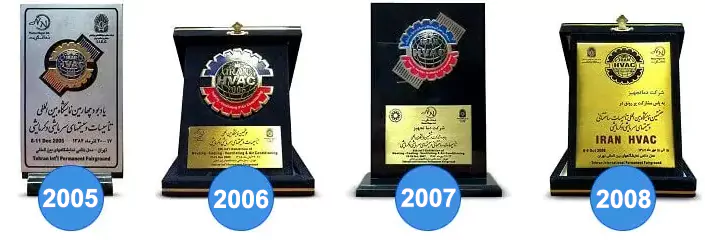
DamaTajhiz HVAC Participation at International HVAC and Construction Facilities Exhibitions Demonstrates its Global Reach and Commitment to the Industry.
We Look Forward to Your Call and the Opportunity to Meet You
SHARE THIS CONTENT TO SPREAD THE KNOWLEDGE
| |
Head Office: No. 463,Talebian Alley,Taleghani St.Tehran,Iran


DamaTajhiz has provided the opportunity to sell and ship specialized HVAC equipment for applicants in the following countries as the first and the most popular online store for selling HVAC equipment (Heating , Ventilation , Cooling , Air conditioning) in the Middle East : Afghanistan – Tajikistan - Uzbekistan – Turkmenistan – Azerbaijan – Armenia – Georgia – Turkey – Iraq – Syria – Jordan – Kuwait – Emirates – Qatar – Oman.

